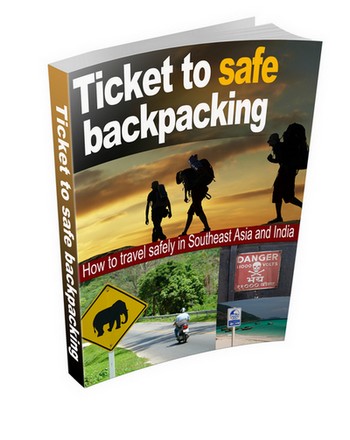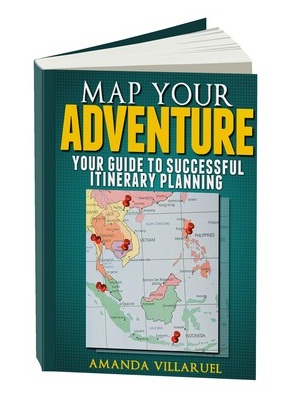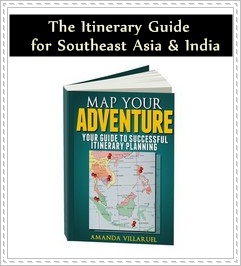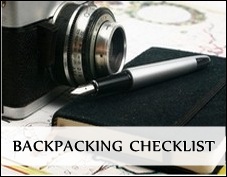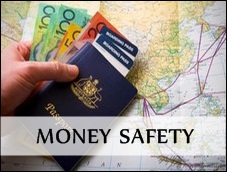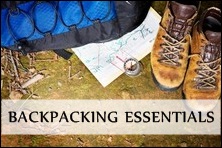|
How to balance work and travel
"Balancing a full-time job with travel"

"How to balance work and travel" was last updated on Jan 02, 2013
So, how can you get a paycheck each month and still travel?
Just because you're a full-time worker doesn't mean you can't travel wherever you want, whenever you want.
Yeah, it requires more planning, but it can still be done.
I personally like my job and I like getting paid for it. But I also love to travel.
I turned 30 a couple of months ago, and I still love to explore the world and experience new things. Age doesn't matter.
If I don't get to travel at least once a year, I seriously notice physical symptoms. What can I say? I love to travel, and I'm sure you do too!
Here are some tips on how to balance work and travel:
- Create a travel plan
Where do you want to go? How often do you want to travel? How many paid vacation days do you have?
Do you want to take several small trips each year? Or take one long trip? The huge advantage about small, shorter trips is the fact
that you can take a break from work more often, while for a long vacation, you get one, long vacation, but that's it for that year.
You can take out more vacation days, but that would probably mean unpaid vacation days.
 Balance work and travel: Planning a trip
Balance work and travel: Planning a trip
The past years, I've been taking five weeks in a row in Asia. When I got back home and started working again for a couple of months,
I felt like taking another break from work.
But I couldn't because I didn't have any paid vacation days left.
Now, I'd rather take between 3-4 weeks in Asia or somewhere else, and then save the rest of the paid vacation days for another occasion.
- The easiest part is taking those shorter trips, to for instance Europe, Australia or Asia.
Many full-time workers have paid vacation days and this makes work and travel economically easier.
The number of paid vacation days vary from country to country,
and from work place to work place. In Norway (where I live), five weeks (25 days) is what governmental employees get.
In France and Denmark, the usual is 25 days, while in the UK you get 28 days. Canadians get 18 days.
- If you're living in Europe and considering a vacation in say, Thailand, you should consider at least two weeks vacation
in the far east. Three weeks is good. You're already paying a large amount of money for a flight ticket to Thailand,
so why not spend more time there? It's not like it's a hop-on-trip to Germany.
 Balance Work and Travel: Beach in Koh Samui, South Thailand
Balance Work and Travel: Beach in Koh Samui, South Thailand
The same applies if you're living in Europe and considering a trip to South America, Australia, US or wherever. Or you're living in
Canada and want to travel to Africa, Japan or another destination on the other side of the planet.
My rule of thumb is: the more expensive the tickets are, the longer stay (if possible of course).
- Make sure you choose the right season to travel. Most people in the northern hemisphere take vacation during the summer.
Summer months in, for instance Southeast Asia, basically mean monsoon/rain season with regional differences.
Traveling in Southeast Asia between November and February is ideal because of the dry season. It might also be easier to "get off" work
and get some vacation time in the winter than it would have been during the summer, when "everyone" is having a vacation. Have this in mind when
you're planning a vacation.
- If you have plans on going backpacking for a long time, maybe several months, probably the biggest concern is:
Will your employer approve that you'll be away from work for months?
Let's say you're planning on going away for 4 months.
 Balance work and travel: Boulders in New Zealand
Balance work and travel: Boulders in New Zealand
An alternative is to collect all your paid vacation days/weeks and then apply for additional unpaid leave.
Of course, the huge disadvantage
is that you won't get paid during large part of your vacation. You have to take this into account when planning your backpacking budget.
Give your boss reasons to say yes; you can make a deal that you'll work all summer, Easter, Christmas etc
to compensate or take extra shifts when required.
It might be difficult for your boss to accept that you'll be gone for a while, especially if you're like the only accountant or
lawyer at the office. If someone else can do your work or do the same type of work and fill your place, the chances are more hopeful.
If you're a journalist, maybe you can work a little while you're traveling? The only thing you need is a computer and internet access.
The next concern when planning a long-term backpacking trip, is money.
What should you consider when setting up a travel budget?
Obviously, you need cash for living the dream abroad :-) You need to settle a budget which includes accommodation, food,
drinks, sightseeing, trekking, shopping etc.
Not only do you need the cash abroad, but also money to cover apartment/house rent, loan etc. while you're away for months.
Things you can "freeze" while you're away, like your subscriptions (work-out, newspaper), should be considered so you save some money on it.
 Check out THE TRAVEL CHECKLIST
Check out THE TRAVEL CHECKLIST
Return to top of Balance Work and Travel
Need more expert backpacking advice?
|
Search this site
|







